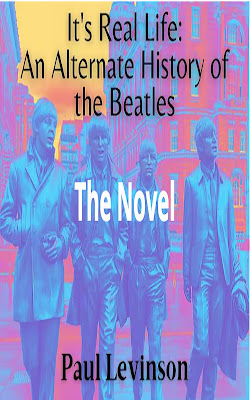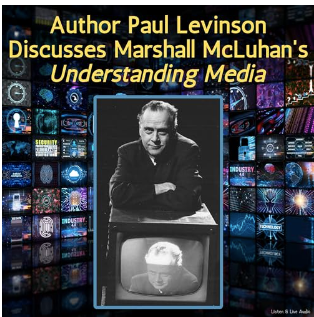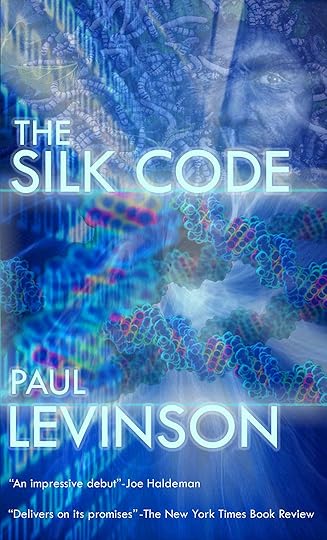Paul Levinson's Blog: Levinson at Large, page 21
May 5, 2024
The Singer Sisters: The Musical Mystique

There's a meta-genre of fiction epitomized in different but overlapping ways by Eddie and the Cruisers, Rob Reiner's This Is Spinal Tap, and Daisy Jones and the Six -- the first and the third adapted to the screen from novels -- that helps us understand what those who make music that lights up our nights are doing when they're off-stage and not in the studio. Sarah Seltzer's The Singer Singers, a debut novel to be published this August, not only fits well in that narrative family, but in some ways exceeds it. I'd expect to see it adapted on some kind of screen before too long.
The Singer Sisters actually tells us two stories, deftly interwoven. One is a moving snapshot of the folk-rock music scene, and therein the larger music venue in which folk-rock played, in the last third of the 20th century. The other is a tableau of upper middle class Jewish culture, in New York City, Boston, and beyond, in the same period of time.
The Singers -- aka the Zingleman sisters -- strive to succeed across two tempestuous generations along with other fictional singers and writers, against a backdrop of real superstars that even non-devotees of folk-rock will instantly recognize. The characters worry about "stealing from Dylan". One of the singers concludes that "Joan Baez was right and Dylan wrong, that kindness mattered more than genius" (I would say that both are crucial). And there are fictitious characters that the cognoscenti will surely know, like the rock critic who uses his way with words to unfairly lambaste excellent work. Meanwhile, the songs are not only spoken of by the characters, but Seltzer actually delivers more than a dozen sets and snippets of original lyrics, demonstrating a considerable talent not only as a novelist but a lyricist. In addition to a movie or a limited TV series, The Singer Sisters also has the makings of a Broadway musical.
The Zingleman sisters are Jewish, and their Yiddishkite permeates the novel, not only in cream sodas, but their parents' wise view that they'd rather see their children fed with goishe food than go hungry without it. In this sense, The Singer Sisters has a kinship with Philip Roth's Goodbye Columbus, and I hope the novel is recognized as the compelling portrait of Jewish culture in America that it is. It's especially important, given the rising wave of anti-Semitism that's afflicting our country and the world.
In case it's not obvious, The Singer Sisters is very much a woman's novel, explored in sisterhood, motherhood, and daughterhood, with love, heartbreak, pain, exultation, and a panoply of uniquely female emotion in every chapter. But men might well get a necessary education from this novel too, and I heartily recommend it to any human being.
Pre-order The Singer Sisters here.============

"Paul Levinson's It's Real Life is a page-turning exploration into that multiverse known as rock and roll. But it is much more than a marvelous adventure narrated by a master storyteller ... it is also an exquisite meditation on the very nature of alternate history."
-- Jack Dann, Fiction Writer's Guide to Alternate History
Paul Levinson's books ... Paul Levinson's music
May 1, 2024
Science fiction sampler
April 30, 2024
Podcast Review of Rebel Moon, Parts 1 and 2
Welcome to Light On Light Through, Episode 384, in which I review Rebel Moon, Parts 1 and 2.
Written blog post reviews of Rebel Moon, Part 1 and Part 2.
Paul Levinson's books ... Paul Levinson's music
Rebel Moon, Part 2: The Robot and the Freshness

Just saw Rebel Moon, Part 2, on Netflix the other night. I enjoyed it. For some reason, my favorite character was the robot, JC-1435, aka James or Jimmy.
I'm not sure what that says about this second part of the movie (which, based on the ending, may well be the beginning of a series of two-part or one-part movies in a saga that now feels to me much more like Dune than Star Wars). Maybe it's the antlers on Jimmy's head. Maybe it's the voice -- you can't go wrong with Anthony Hopkins doing the voicing of anything. But all in all, James conveyed a sensitivity that's rarely seen in robots or androids in movies or TV series, and which in its own way had a subtlety that even Data in Star Trek: TNG seldom quite achieved.
The battles were good and exciting, strong edge-of-your seat stuff. The villains, however, often verged on cartoonish. The heroes had more subtlety, and maybe that's because there were more of them than the villains. I won't warn you about spoilers, because there won't be anything specific in this review, but I will say that this part of the movie which I hope will be a series concluded with fewer heroes than it had at the beginning.
Yeah, I hope we'll see more. I like looking at the state of the human species at times like these, when we've gone way out into the cosmos, and met other intelligent beings, some of them now deadly foes, others of them loyal friends. The problem with both Star Wars and Dune, and we can add Foundation to this list, is that if we've done any reading or watching, we already know who the major characters are and who they will be. Sometimes we even care about them so much, we don't like it if they're substantially changed in the new treatment (or at least, I feel that way). But Rebel Moon, even though it deals with very well worn tropes, has a winning freshness and relevance to it. The heroes in Rebel Moon, when they're not fighting Nazis, are harvesting grain. Just like they do in Ukraine.
And that's why I'm totally aboard to see more.
See also: Red Moon, Part 1: Galactic Heroes and Villains
April 23, 2024
Podcast Review of Constellation
Welcome to Light On Light Through, Episode 383, in which I review the first season of Constellation.
Written blog post review of Constellation.
Mentioned in the podcast:
"The Chronology Protection Case": novelette, movie, radio play (audio book) It's Real Life: An Alternate History of The Beatles: novel, radio play of first chapter, video of book launch "The Other Car": short story, audio book written blog post review of Gerrit Van Woudenberg's Quantum Suicide
Paul Levinson's books ... Paul Levinson's music
April 21, 2024
50 Years After Understanding Media: Audiobook of My 2014 Keynote Address at Baylor University

Just published: Audiobook of my 2014 Keynote Address at Baylor University, "50 Years after Understanding Media". Listen to a free audio sample, buy the audiobook here.
April 16, 2024
Podcast Review of American Rust 2
Welcome to Light On Light Through, Episode 382, in which I review the second season of American Rust.
written blog post review of the second season of American RustPaul Levinson's books ... Paul Levinson's music
April 15, 2024
Constellation: Alternate Realities and Family

I've read and seen many alternate reality stories. Some are caused by quantum entanglement -- the mega version of two subatomic particles colliding and then moving in opposite directions but still intimately and instantly connected -- and some just happen or are already there. I just reviewed a movie with that schema, and have written a few double realities stories and a novel with that premise myself. But none explore the existence and impact of that on families the way that Constellation does. Indeed, none do much of that at all in the at once deep and startling way that this new series on Apple TV+ does.
[Some spoilers ahead ... ]
The title and the start of the series makes you think it's a story about space travel. But space is just the catalyst for a powerful, heart-tugging story that takes place right here on Earth. Jo is an astronaut on the International Space Station, which suffers a devastating accident. Most of the astronauts, cosmonauts, and space travelers from Europe manage to return to Earth. Jo and Paul are left on station. Paul dies of his injuries. Jo manages to get back to Earth, and that's when the fun begins. That is, fun for us, quite the opposite for Jo and her family.
Jo soon discovers that things aren't quite the same with her family as when she left for the voyage to the ISS. Her husband Magnus is surprised with how much Jo seems to like him. Her daughter Alice doesn't seem quite the same person. We soon learn that this voyage to space has split Jo's reality into two -- literally. There are, or were, two Jo's, two Magnus's, two Alice's. We hear about macro quantum entanglements. In this case, two families, which in fact are two versions of the same family.
There's a history to this -- the strange effect of going out into near space has been happening at least since the 1970s. There's a touch of alternate history, too. There's an Apollo 18 mission (in our reality, the Apollo Program ended with Apollo 17's trip to the moon). But the heart of this carefully crafted narrative is the agony that Jo's two families -- the same family, in two slightly but significantly different versions -- go through as they struggle to make sense of Jo's return from space and what's happening to them.
The narrative is immensely savvy, with winks to all kinds of things. There's a cat that lives and a cat that dies, apropos Schrödinger. Alice lives up to her literary tradition, in wonderland through the looking glass. And the story is lifted by powerful performances, especially Rosie and Davina Coleman (twins) as the Alices, and Noomi Rapace as Jo. Jonathan Banks as Henry/"Bud" Caldera, an astronaut on that Apollo 18 mission and still very much around in twofold form in the 2020s, puts in an even more memorable than usual crusty performance. And it was good to see Barbara Sukowa as Irena, a cosmonaut whose double plays a crucial role in this story. Hats off twice to Peter Arness (Wallander) who created and wrote the series.
All in all, a thought-provoking, tightly woven, emotionally valent eight episodes of what could well be the first season of more to come, and I won't soon forget in any case.

April 13, 2024
Quantum Suicide: Beholding the Eye of the Storm

Gerrit Van Woudenberg's Quantum Suicide movie (which he wrote, directed, and -- with Shane Morgan - co-produced) won the Best Sci-Fi Dramatic Feature award at the Philip K. Dick Film Festival last week in New York. I was at the Festival, and moderated a panel with Van Woudenberg, but I had another appointment when the movie was shown at the Festival. Van Woudenberg was good enough to give me the URL for a screener, which I just saw and greatly enjoyed. Herewith a non-spoiler review.
The clockwork of the movie is quantum mechanics, something which will be familiar to readers of my novelette, The Chronology Protection Case, and viewers of the short film that Jay Kensinger made from my story. The multifaceted gist of QM is that is that mere observation of quantum particles affects their location, speed, and existence; that when two particles collide and go off in opposite directions, anything that happens to one instantly influences the other, regardless of how far apart they are, and because this "quantum entanglement" happens regardless of the distance between the particles, it contradicts the widely held notion that speed of light is the ultimate speed in the universe. Further, particles in themselves exist in either/or states, and observation of a particle determines which state the particle is in, and can even destroy it -- much like, I always think, what trying to fathom the texture of a snowflake with your fingers does to the snowflake.Quantum Suicide takes this one crucial step further, drawing on the quantum suicide thought-experiment -- in which a gun pointed at the observer can either be shot or not -- and hypothesizing and weaving a story around the premise that therefore the observation of a subatomic particle can also destroy the observer. Or, more precisely, the experimenter in the eyes of the observer.
But don't think you need to be a quantum physicist to understand and really enjoy this movie. I'm not, at least in this universe If you have a taste for Primer -- the now classic 2004 time travel movie -- or any movie that features the scientist or scientists doing concept-bending and earth-shattering work in their spare bedroom or garage, you'll love Quantum Suicide. Like Kensinger's The Chronology Protection Case, Quantum Suicide features detailed scientific explanations woven into the action, which always feel to me to be something Hugo Gernsback would've greatly appreciated. And as for work-at-home science, the movie not only features the scientist and his significant other, but their next-door-neighbor, a little girl who also spends her time building radios and ant farms.
Kennedy Montano does a good job as that precocious girl, Emily, as does Andrew Rogerson as that work-at-home scientist Cayman with a penchant for self-destruction, and Kate Totten as his life partner Gen. If you crave a little science in your science fiction you can't go wrong with Quantum Suicide, and if you don't, you don't know what you're missing.

watch the movie on Amazon Prime Video
Paul Levinson's books ... Paul Levinson's music
April 7, 2024
Fatal Crossing: Anatomy of a Serial Killer

[Big Spoilers ahead ... ]
I've heard -- in television shows and movies about serial killers, I've never done any research into them myself -- that female serial killers are very rare. Fatal Crossing, the latest Nordic Noir TV series from Kristine Berg and Arne Berggren, does a masterful job of portraying one, and how she came to be.
The villain, Lisbeth/Jyte, tells her interrogator, the journalist Nora Sand, that she's not afraid of being abandoned, she's afraid of being forgotten. That's as an astute a statement of the obsession with fame that I've come across. As part of Lisbeth's quest for fame, she likes to be quoted. I hope this fictional character appreciates that I've at least paraphrased her.
Fortunately, most people who value fame and enjoy a bit of it, including me, don't achieve it and seek to maintain it by killing people. Lisbeth discovers how much killing attractive young women really appeals to her when she and her best friend Lulu are kidnapped by a man with a taste for harming young women himself, and Lisbeth turns the tables on him, not killing him, but running him and Lulu in support of satisfying her own deadly needs.
We follow the path to discovering this depraved menage a trois via the central character, Nora Sand, an intrepid journalist with her own backpack of emotional baggage. She's played in compelling detail by Marie Sandø Jondal, whom I've never seen before on the screen. Indeed, I've never seen a searcher for serial killers portrayed with quite the range of emotional valence Sand brings to the part.
Berg and Bergson deserve a lot of credit for this, as does Lone Theils, herself a Danish journalist and author of the novel of the same name from which this TV series was adapted. Fatal Crossing is itself the first in a series of novels, and I very much look forward to seeing more of this Nordic Noir with a twist from this team.
See also my reviews of these other Berg and Berggren TV series: Catch and Release and Outlier
And my 2022 interview with Berg and Berggren:
=====
Levinson at Large
- Paul Levinson's profile
- 340 followers





